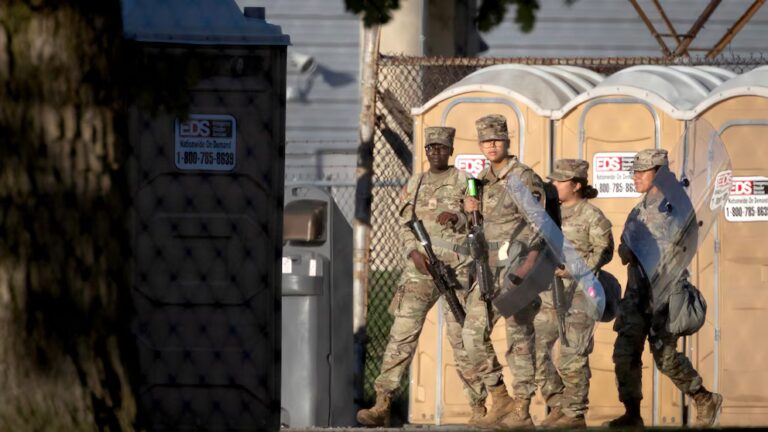
Collective anger about restrictive voter ID laws is reaching a fever pitch.
In state after state during the 2018 midterms, voters were finding casting their ballot on Election Day to be difficult or nearly impossible. Even more troubling, many of those facing difficulties were minorities.
Rep. Terri Sewell (D-AL) wants to do something about it. She has a bill that would restore key parts of the landmark 1965 Voting Rights Act, making it more difficult for states to discriminate against voters of color, and give the federal government a stronger ability to take action against states with a history of discrimination.
Sewell bluntly describes strict voter ID laws as “modern-day forms of voter suppression.”
“While we no longer have to count how many jelly beans are in a jar or recite all of the 67 counties of Alabama in order to be able to vote, we are seeing greater efforts putting restrictions on voting in the name of fraud,” Sewell told Vox in a recent interview, referencing Jim Crow-era tactics used to keep black Alabamians from voting. She represents Selma, Alabama, a city that was on the forefront of the 1960s civil rights movement.
Sewell’s bill, the Voting Rights Advancement Act, is designed to restore key provisions of the Voting Rights Act that were invalidated by the US Supreme Court’s 2013 Shelby v. Holder decision. Her bill was initially tucked into House Resolution 1, the sweeping anti-corruption bill that is Democrats’ first of the year, but lawmakers now plan to break it out and make a real push of it on its own (a separate provision that would create automatic voter registration will stay in HR 1).
That’s because Sewell and House Democratic leaders are anticipating a long, drawn-out legal battle over the voting rights bill — potentially all the way up to the US Supreme Court. They want to establish a long record of public testimony from voters who have faced problems, through committee hearings and markup.
Even if the bill has little chance passing a Republican-controlled Senate, House Democrats want to ready it for 2020, after which they could have a greater chance to make it law.
“We want to establish an ironclad constitutional record when we pass it, which will be soon, but not as soon as moving HR 1,” House Minority Leader Nancy Pelosi, who is poised to become speaker in January, told reporters last week.
For Sewell, this bill is rooted in a dark chapter of America’s history, one she does not want to see repeated.
“I’m a daughter of Selma. Nothing is more important to my constituency than restoring the Voting Rights Act,” Sewell said. “We first have to address the integrity of our elections.”
What the Voting Rights Advancement Act will do
The Supreme Court’s 2013 decision in Shelby County v. Holder invalidated a portion of the Voting Rights Act relating to a “coverage formula,” which identified certain towns, counties or states with a history of voter discrimination.
Essentially, if those places wanted to pass new voting laws, they had undergo extra scrutiny from the federal government — an additional measure to protect voters from discriminatory laws being passed. In its decision, the Supreme Court asked Congress to come up with the standard for a coverage formula, something that Congress hasn’t done.
As the Atlantic’s Vann Newkirk wrote earlier this year, this has left a wide gap for states to pass laws discriminating against voters of color with little recourse.
Sewell’s bill would spell out exactly how a state, city, or other entity might have violated the Voting Rights Act and charge the US Department of Justice with doing more oversight, assigning election observers to states or municipalities with repeated problems.
Charging the federal government with taking a more active role is important, as a report by the federal Commission on Civil Rights found that even as the number of voting rights lawsuits has increased since 2013, only a small fraction of those have been brought by the US Department of Justice. Many of the rest have been filed by voting rights groups, which don’t have as much sway as the federal government.
If Sewell’s bill were passed today, she would like the federal government to take a closer look at 13 states with history of voter discrimination: Alabama, Georgia, Mississippi, Texas, Louisiana, Florida, South Carolina, North Carolina, Arkansas, Arizona, California, New York and Virginia.
“I’ve heard testimony after testimony across this country of Americans finding it harder for them to vote,” Sewell said. “If one person is denied access to the ballot box, it goes to the heart of the integrity of our entire election system.”
But so far, it’s remained a partisan issue. No House Republicans signed on to Sewell’s bill when it was first introduced, and Sen. Lisa Murkowski of Alaska was the only Senate Republican to sign on.
“We can’t unring the bell,” Sewell added. “What we’ve seen is that since Shelby, more than 30 states have imposed greater requirements for voting, and in a lot of those states, we’ve seen elections take place that have later been found to have had intentional discrimination.”
Why this is getting so much attention now
In states all over the country, voters of color complained they were facing unusual barriers to voting ahead of Election Day. But in many ways, Georgia was ground zero for a huge fight about voting rights in the 2018 election.
Allegations of voter suppression against black voters reached a tipping point just days before the election, with suspicions heightened by the fact the Republican candidate for governor, Brian Kemp, was serving also the current secretary of state and in charge of state elections. (Kemp ended up winning the election, beating Democrat Stacey Abrams.)
A few weeks before the election, a report from the Associated Press revealed the state’s “exact match” voter ID rule, which required the information on a government-issued ID card like a driver’s license or Social Security card match up exactly with the name and information on a voter registration application. Even something as simple as a missing hyphen or typo could throw the whole thing off, leading to 53,000 voter registration applications to be held up at the Secretary of State’s Office. The vast majority of those voters were black, the AP found.
“Georgia was an extreme case and maybe an outlier,” said Wendy Weiser, director of the Democracy Program at Brennan Center for Justice. But Weiser added the situation in Georgia reflected what was going on in many other states.
For instance, North Dakota’s voter ID law forced voters to produce a street address, something that those who live on Native American reservations are not required to have. The law sent Native American voters into a scramble to provide street addresses, and carried the risk of disenfranchising an entire group of minority voters. Other legal challenges about restrictive voter ID laws kept cropping up in states including New Hampshire, Missouri, Florida, and North Carolina.
“Every day there was something new coming up, it was just the intensity in which voting rights were being attacked,” she said. “This election cycle, the vote suppression efforts have been more pervasive and more brazen than in any other modern push to restrict voting access.”
How the issue of voting rights became so partisan
Weiser made it clear: This is not coming out of the blue.
The push to pass voter tougher ID laws originated during the red wave of 2010, the year Republicans swept into state legislatures across the country and started to push plans for voter ID. The 2013 Shelby v. Holder case essentially gave them the green light to keep doing so.
“What we’ve seen is that since Shelby, more than 30 states have imposed greater requirements for voting, and in a lot of those states, we’ve seen elections take place that have later been found to have had intentional discrimination,” Sewell said.
Sewell and Weiser both say race, in addition to partisanship, is at play with voter ID laws and with gerrymandering. In numerous high-profile gerrymandering cases, courts have ruled Republican lawmakers drew congressional district lines to weaken the votes of minority groups.
“[Partisanship] is often overlapped with race. Race is deeply baked into those events and those stories,” Weiser said. “Racially polarized voting, anxiety about the increasing political power of minority voters and citizens and the future demographic change away from a majority white country.”
Sewell believes that rather than trying to figure out ways to court minority voters, Republican politicians in many states are simply trying to make it more difficult for them to vote.
“Clearly when fewer people vote, Republicans and GOP win,” Sewell said. “I think that what you’ve seen is the GOP has determined that the more restrictive laws are — they’ve done so in the name of voter fraud. But there’s no evidence of pervasive voting fraud in America.”
Sewell said she remembers a time when the Voting Rights Act was a bipartisan bill, easily reauthorized by both parties. She hopes Congress can return to the way things were, and both parties can agree to making the ability to vote easier for all Americans, not harder.
“I just don’t think the right to vote should be a partisan issue,” Sewell said.
Sourse: vox.com






